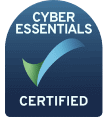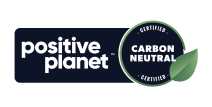Google EEAT, previously known as Google EAT, is an acronym which stands for Experience, Expertise, Authoritativeness and Trustworthiness.
This concept is one of the considerations Search Quality Raters use to evaluate the quality of search results.
While E-E-A-T isn’t a direct ranking factor, it is one of the guidelines which Quality Raters use to give feedback to Google about the success of their algorithm updates.
By adhering to the principles, you will undoubtedly be moving your SEO strategy in the right direction.
In March 2013, Google first published its official Search Quality Rating Guidelines, which you can read an overview of or dig into the in-depth version.
However, there was no mention of the acronym until March 2014, when Google added EAT to its guidelines.
While the guidelines are updated approximately once a year, no more major changes came about until December 2022, when Google added the extra E for Experience.
How does Google rank results?

Google has released information about the steps it goes through to rank results. The factors it considers are as follows:
- Meaning of query
- Relevance of content
- Quality of content (EAT)
- Usability of web pages
- Context and settings
You can read about the other factors in-depth by clicking on the link above, but for now, the relevant factor is Quality of content.
Google says: ‘our systems aim to prioritise those [pages] that seem most helpful. To do this, they identify signals that can help determine which content demonstrates expertise, authoritativeness and trustworthiness.’
If we tie this together, the steps above can be interpreted as the following actions:
- Establish the user intent
- Build out content with the right keywords
- Ensure your page quality adheres to EEAT guidelines
After that, focus is placed on
- User experience and Core Web Vitals
- User settings e.g. location, search history
What about YMYL?

YMYL is an acronym referenced in the Search Quality Evaluator Guidelines. It stands for Your Money or Your Life and refers to content which can ‘directly and significantly impact people’s health, financial stability or safety, or the welfare or well-being of society’.
Certain content could cause harm if it doesn’t communicate accurate information and doesn’t come from a trustworthy source. Example topics listed by Google in its Guidelines include:
- Symptoms of a heart attack
- How to invest money
- What to do if there is an earthquake
- Who can vote
- Qualifications needed for obtaining a driver’s license
In Google Search Central, the tech giant says: ‘Our systems give even more weight to content that aligns with strong E-E-A-T for topics that could significantly impact the health, financial stability, or safety of people, or the welfare or well-being of society. We call these “Your Money or Your Life” topics, or YMYL for short.’
In other words, if your content falls under one of these topics, particular attention needs to be paid to the EEAT principles.
How is E-E-A-T broken down?
There are three main components which need to be optimised for EEAT:
- Your website
- Your main content (MC)
- Your author(s)
A larger weighting is placed on the author. It’s important for authors to demonstrate experience, expertise, authoritativeness and trustworthiness.
Websites and main content must be authoritative and trustworthy.
How has this weighting been decided? The Search Quality Rater Guidelines Overview states: ‘In determining page quality, Raters must consider EEAT:
‘The first-hand experience of the creator.
‘The expertise of the creator.
‘The authoritativeness of the creator, the main content itself and the website.
‘And trust: the extent to which the page is accurate, honest, safe, and reliable.
What makes a website authoritative and trustworthy?

Positive reviews
Ensure your site has received positive feedback from users, readers or customers – both on the site itself and off-site, e.g. on local Google Maps reviews, third-party sites such as TrustPilot and social media.
Recommended by expertise
Work to have your site recommended by others in your industry who have proven expertise. The algorithms will match external expertise with the positive recommendation and deduce that your site is trustworthy and authoritative.
Appear in reviews and articles
Holistic, natural and regular referencing to your brand in reviews and articles is a surefire way to cement your site’s position as a top resource in your area. If others cannot discuss the industry without referencing your brand, this is a great sign.
Links from other authoritative sites
Also known as obtaining backlinks, digital PR or getting Tier One coverage, ensuring your site is not just mentioned, but linked back to, on sites with a high domain ranking will ensure that Google is being sent positive quality signals about your brand.
Unique business address
Having a business address listed on your site, which is not shared with other businesses and matches the location you are operating in, will help with trustworthiness. Some use a virtual mailbox if their business doesn’t operate from a physical office, or it operates from a personal address.
Show various email addresses
Just one contact email address on a website won’t necessarily showcase sufficient trustworthiness. Having multiple addresses for different company departments will demonstrate that people can get in touch with specific people, increasing trustworthiness rankings.
Different emails for authors
Those who are writing regularly for the site should have their own email address which is visible. Google will receive an indicator that the company isn’t faceless and comprises real people who can be contacted and engaged with.
GDPR compliance
Two basic steps to take here are ensuring your privacy policy contains GDPR-compliant language and displaying a GDPR cookie notification pop-up when visitors access the site.
Build out expected pages
These pages include the About page, Terms and Conditions, Privacy Policy and so on. Not having them on your site will make your site stand out for the wrong reasons, as visitors will expect to see them – even if they never click on them.
Copyright message
As with the expected pages, visitors are used to brands taking steps to protect their intellectual property, so ensure your site includes a message indicating that its content is copyrighted and not to be duplicated or republished without authorisation.
What technical SEO factors should be considered for site trustworthiness?

Site architecture
Site architecture refers to the organization and structure of your website. It should be designed in a logical and user-friendly manner, with clear navigation and hierarchical structure. A well-structured site architecture helps search engines understand the content and context of your website, which can contribute to its trustworthiness.
Crawlable pages
To ensure that search engines can effectively crawl and index your website, it’s crucial to have crawlable pages. Crawlable pages are pages that search engine bots can access and analyse. Avoid blocking search engine bots with directives like “noindex” or “nofollow” tags unless there’s a specific reason to do so.
Robots tags allow for indexing
Robots tags, such as the “index” and “follow” directives, are HTML meta tags that provide instructions to search engine crawlers. By using these tags appropriately, you can control which pages should be indexed and followed by search engines. For trustworthy sites, it’s generally advisable to allow indexing of all relevant pages.
Submit XML sitemap to Google
An XML sitemap is a file that lists all the important pages on your website, helping search engines discover and crawl them more efficiently. Submitting your XML sitemap to Google Search Console (formerly known as Google Webmaster Tools) helps ensure that Google is aware of all the relevant pages on your site. Note that relying solely on a basic WordPress plugin-generated sitemap may not cover all pages, so it’s important to verify and potentially enhance it manually.
404 errors
When a page is no longer available or has been moved without proper redirection, visitors and search engine bots may encounter a 404 error page. Monitoring and addressing 404 errors is essential for maintaining a trustworthy website. By promptly fixing broken links or setting up appropriate redirects, you can improve user experience and preserve the integrity of your site.
Broken external links
External links on your website that lead to non-existent or broken pages can harm your site’s trustworthiness. Regularly check for broken external links and update or remove them as necessary. This demonstrates that you maintain an up-to-date and reliable network of external references.
SSL certificate
An SSL (Secure Sockets Layer) certificate encrypts data transmitted between a user’s browser and your website, ensuring a secure connection. Having an SSL certificate is crucial for establishing trust and protecting user privacy, particularly for websites that handle sensitive information like passwords or payment details. Search engines also prioritise websites with HTTPS (secure) URLs, which can positively impact your site’s visibility and credibility.
What makes main content authoritative and trustworthy?

Original information
Particularly applicable to news content, this factor is a sure-fire way to demonstrate authority in your niche. If you are providing information that wouldn’t have been known without your content revealing it, then people will flock to it so they can obtain fresh details.
Comprehensive coverage
The content should provide an in-depth description of the topic and provide genuine value to the reader. This doesn’t necessarily mean creating a large volume of content – Google has said themselves they don’t have a preferred word count.
Internal linking
Your content should link out to other pages on your site where it is relevant to do so. Don’t just link out to try and meet an arbitrary or self-imposed quota – instead, look for genuine opportunities where the reader would be helped by anchor text linking out to more in-depth information on a particular sub-topic.
Functional and easy-to-use content
All web pages must be created with effort and skill if you want them to achieve high levels of E-E-A-T. Part of this practice includes creating features which are functional and easy for visitors to use. For example, if your webpage features a mortgage calculator, you want the tool itself to be easy for any user to operate, and for the contextual information to be clear and comprehensive enough to serve its purpose.
Topic clusters
Google regularly indicates, in its Examples of Highest Quality Pages, that pages receiving the best rating are known for having a positive reputation for their niche. If you are not a well-known brand, a way to develop authoritative and trustworthy content is by employing expert creators to build out topic clusters, so that you are building a repository of comprehensive content for users to find and benefit from.
What makes an author demonstrate experience?
Use language which references experience
In both the author bio and the content itself, ensure that statements are weaved into the content which demonstrate the relevant experience. For example, a creator may put in their bio that they have loved fixing computers for the last 15 years. They might write a review of a computer, and reference a time when they fixed an earlier model a decade ago in the copy.
Weave in proof of success
Don’t be afraid to announce your achievements and successes. You may like to make it clear in your author bio that you increased traffic to your e-commerce store to over 100,000 visits per month, or you could mention in the About Us page of your site that you have a number of successful brands, and this is your latest project.
State opinion, not fact
Experts will provide their opinions on a topic, using their experience to give it merit. Instead of writing a statement as a fact, such as ‘Samsung has the best battery life’, write an opinion instead and explain why you think that’s the case: ‘I think Samsung has the most robust battery life, because when I took it on a road trip I was able to use it for navigation, taking photos and messaging for over ten hours before I had to charge it.’
Harness outside authority
Experienced authors recognise when others have it too, so consider bringing in guest authors or collaborators to make your content even better. You may consult with another expert on a piece and get their take on accuracy for a few sub-topics they can lend more experience to, or you may like their help in building out a topic cluster.
Experienced author bio
We have mentioned that author bios should include information about the author’s relevant experience. Where possible, this section should reference additional factors indicating experience, such as other places they may write for – and even a photo demonstrating experience in the niche. For example, if you’re experienced in fixing computers, ensure your author photo is of you doing exactly that!
What makes an author demonstrate expertise?

Provide relevant credentials
If you are writing about a specialised field such as medicine, including information about your medical credentials in your author bio can indicate to readers and search engines that you have the necessary knowledge and qualifications to write expert content on the topic. You can also include links to reputable sources that verify your credentials, allowing readers to independently verify your expertise.
Strong content architecture
Demonstrating expertise across an entire topic cluster or related clusters is another way to establish yourself as an expert author. By consistently producing high-quality content that covers various aspects of a specific topic or related topics, you showcase your deep understanding and knowledge in that area.
Knowledge panel
A knowledge panel is a section that appears in Google’s search results for certain entities or individuals. It provides a summary of information and links related to the entity or person. As an author, having a knowledge panel can significantly enhance your credibility and demonstrate your expertise to users. It can include social links, a list of authored pieces, and an expertise summary that aligns with your published content. This feature not only improves your visibility but also reinforces your authority and establishes you as a trusted source in your field.
Participate in discussions
Engaging in conversations, answering questions, and sharing insights in relevant forums, social media groups, or online communities can help you showcase your knowledge and establish yourself as an authoritative figure in your niche.
Person schema with relevant properties
By implementing person schema markup and including relevant properties such as certifications or professions, you provide search engines with additional information about your expertise. This markup can enhance the visibility of your authorship information in search results and help search engines recognize and highlight your qualifications.
What makes an author authoritative?
Active social media presence
Maintaining an active presence on social media platforms can help you demonstrate your authority as an author. Share high-quality content related to your niche, engage in discussions, and provide valuable insights to your followers. Regularly posting and interacting with your audience can help build a community and establish you as a reliable source of information.
History of writing for other websites
If you have a history of writing for other websites, this is a great way to show Google that you are an authority on your chosen subject. This means that you have been vetted by other editors and publishers, and that your work has been deemed to be of high quality.
Speak at conferences or events
When you speak at an event, you are essentially putting yourself in front of a large audience of people who are interested in your topic. This is a great opportunity to share your knowledge and expertise, and to build your reputation as an expert. When the event is promoted or talked about online, you will build up contextual authority as you will be mentioned as one of the speakers.
Publish books or white papers
If you know enough about your topic that you can produce books and/or whitepapers about it, then you are on the fast track to becoming an authority. When people reference your work online, you will quickly be showing Google that you are a trusted source of information that is recognised and used by others to further discussion in the field.
What makes an author trustworthy?

Seek independent reviews
The best sign that you are a trustworthy source of information is to have third parties vouching for you. This could come in the form of independent reviews, news articles referencing you or similar. In other words, if people are talking about you positively or referring to you in their work, Google will know you’re trustworthy.
Build a good reputation
You may be capable of producing high quality content, but if you have a poor reputation then you won’t be adhering to E-E-A-T guidelines as an author. A poor reputation could include a history of working on untrustworthy websites or producing content which posed a risk of harm in the past. Ensure your online presence reflects your experience, expertise and authority, and the trust will naturally follow.
As mentioned above, the other three factors – Experience, Expertise and Authority – will also contribute to Trustworthiness. Google says: ‘These considerations overlap. For example, while conducting reputation research, you may find information about the expertise of the content creator which increases your level of Trust.’
Optimising For Main Content (MC) Quality
Google references the following factors when discussing how raters determine a page quality rating:
Effort
The content should take a significant amount of effort to create. In other words, using AI to produce content will not result in the level of quality Google is looking for. Content should be thoroughly researched and read well.
Originality
Simply rewording content is not enough to meet quality guidelines. Your content should take the reader on a journey from start to finish and give them unique information or insight they wouldn’t have found elsewhere.
Talent or skill
Content should be created by those who have talent or skill in doing so. While anyone can write content, it does not then follow that all content is high quality. Those who have spent years working on their craft will produce copy which reflects this talent or skill.
Avoiding Low Page Quality (PQ)

To avoid low page quality, take the following steps:
Create helpful content
Whenever you are creating a piece of content, ask yourself whether it will provide value to those who read it. If you are just creating it to rank for a keyword or build out an arbitrary word or page count target which has been set by internal stakeholders, you will not be producing content that Google will value.
Eliminate risk
Google states that ‘websites or pages that are harmful to people or society, untrustworthy, or spammy…should receive the Lowest rating.’ Examples of these poor-quality pages include those which encourage ill treatment towards a specific group of people, pages which are designed to manipulate the visitor into certain actions which would benefit the site but harm them, and content containing unsubstantiated theories or claims which are not grounded in reasonable facts or evidence.
Misleading titles
Content should not have titles which are exaggerated, shocking or misleading. Ultimately, if a page title has been crafted purely to entice clicks from users, but the main content does not reflect the title, this will lead to a poor search experience and it will result in the main content being deemed as low quality.
Moving from Medium to High Quality MC
As you will have seen, low-quality content is pretty easy to avoid. After all, those who are working in a professional capacity on content SEO will not be willing to publish content which is misleading, harmful or deceptive!
However, it can be difficult to work out whether content will be seen by Google as medium or high quality. Optimising your content so that it is seen more positively can help with your overall site rankings.
| Medium Quality MC | High Quality MC |
| The content has a purpose but it is not interesting or meaningful. | The content delivers interesting, original information and leaves the reader with a distinct feeling or impression, prompting engagement, discussion or comments. |
| The content provides relevant information but it is not particularly original or entertaining. | The content has been written by an experienced creator with talent who has taken time to produce entertaining and original information that contributes new detail. They showcase first-hand experience and/or opinion that reflects their expertise. |
| The site has a neutral reputation – there is no bad information out there, but it does not have any distinctly positive reviews, either. | The site is a well-known pioneer in its chosen industry and it has won awards for its work. There are positive third-party reviews about the site. |
| The page does not cause harm to the user. |
The page is actively beneficial for the user. |
| The images are taken from other sources and can be found elsewhere. |
Original imagery and video footage has been supplied by the user to further enhance the content. |
Need some help?
If you’re not sure where to begin with optimising your content for Google E-E-A-T – or you want to check you’re on the right track – we’re here to help.
You can book a Free Acquisitions Workshop to find out where your current position in the search market is and discover actionable and expert advice to boost your organic strategy. Get in touch today to find out more.












